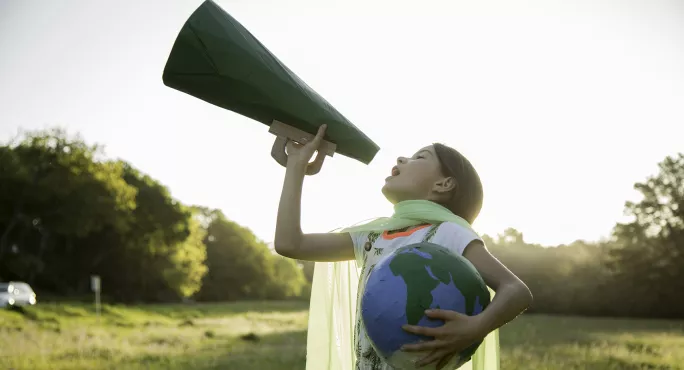Why we must help pupils think - and speak - on their feet

Long before any of us can read or write, we communicate through speech. We very quickly learn how to persuade those around us using speech, and we think on our feet.
These are skills nurtured in schools. Oracy (or the skill of listening and talking) is as important a component of literacy as reading and writing. It is encouraged through group discussions, presentations, debates and social interactions across the curriculum in all subjects.
From the earliest stage of education in Scotland, children are expected to be able to learn to take turns in discussions and develop an awareness of how to make a point in different situations. In secondary school, by the end of S3, young people should be able to engage with others, take into account other points of view and respond in a way that reflects those differing perspectives, while clarifying and adapting their own thinking out loud.
- Quick read: How to tackle pupils’ crippling fear of public speaking
- Speak up: ‘Public speaking is an essential skill at school’
- A pupils’s view: Why debating helps with much more than public speaking
- Opinion: Why every primary school should teach debating
- Also this week: Can the Scottish Attainment Challenge ever truly ‘work’?
It’s an excellent ambition to set our young people, and as a modern studies teacher, it’s one I put at the centre of my classroom - an expectation that pupils will discuss, debate and challenge, and that they’ll do it respectfully and adapt to what others say.
What prompted me to think a bit more about this was a fairly high-profile moment in the Scottish Parliament yesterday, where it’s fair to say that an MSP struggled to adapt to a changing debate and instead responded with a pre-prepared speech. We shouldn’t read too much into it - we’re all human, we all get caught up in a moment and struggle to adapt.
But at the same time, this incident reflected why it is so important we build the skills and confidence in young people to be able to speak out and share their opinions. We want young people not only to be able to talk confidently but to listen and adapt at the same time - in short, to think on their feet and express themselves effectively.
While oracy is at the heart of the curriculum, it is often overlooked as a specific skill that needs to be taught in schools. Public-speaking and debate clubs build on the confidence young people already have and nurture this, but in the wider educational context, perhaps those who are less keen on putting their hand up to share their opinion never get as much of a look in to the debate.
I always remember being at a workshop in a previous job where a young person said “some days I go through the whole day without saying a word in class - it’s not that I’m not thinking anything or that I don’t have an opinion, it’s just I don’t want to say anything out loud”. Imagine spending your whole day feeling like that.
We also know this is an issue - like so much in education - about social background. Young people growing up in areas of deprivation are far less likely to participate in discussions because many lack the confidence to do so or assume their view will be wrong. The charity Voice 21, which aims to improve high-quality oracy education, states that disadvantaged children’s spoken-language development is significantly lower than their more advantaged peers, and that the gaps widen throughout school - by the age of 14, the gap is estimated at five years.
Little wonder, then, that so much of our political and media classes come from more affluent backgrounds, with all the singular perspectives on issues that brings. Look at school debating competitions, too - how often is it that pupils from schools in areas of deprivation make it all the way to the top? it isn’t by accident.
When we look at the quality of debate in the Scottish Parliament, young people should see the best and the brightest - a representative group of women and men from all social backgrounds speaking confidently and passionately on the issues they are sent there to represent us on.
Young people should be inspired, and see themselves potentially standing there in Parliament sharing their own opinions. More focus in schools on nurturing the skills that make that possible - whatever our subject or role - will make sure that that happens.
Michael Shanks is a modern studies teacher in Scotland. He tweets @mgshanks
You need a Tes subscription to read this article
Subscribe now to read this article and get other subscriber-only content:
- Unlimited access to all Tes magazine content
- Exclusive subscriber-only stories
- Award-winning email newsletters
Already a subscriber? Log in
You need a subscription to read this article
Subscribe now to read this article and get other subscriber-only content, including:
- Unlimited access to all Tes magazine content
- Exclusive subscriber-only stories
- Award-winning email newsletters
topics in this article



